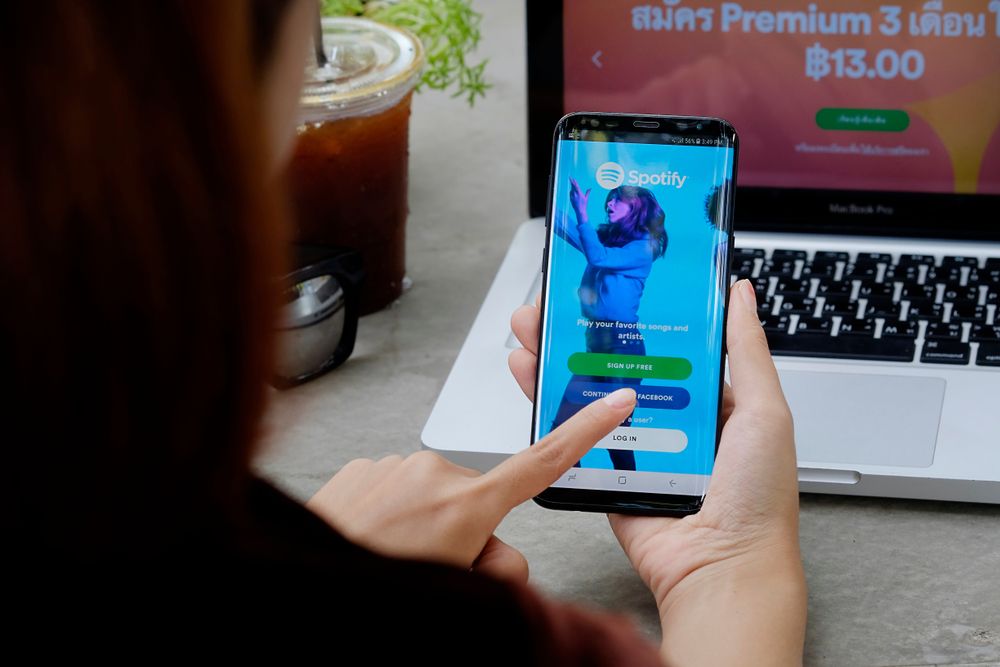When it comes to social media platforms like Spotify, you never can be sure just how much information you’re sharing. Facebook seems to consider everything from your birthday from how long you sit viewing an ad. Instagram is similar, with other platforms following in its wake. While not considered as much of a social media platform, Spotify still falls into the category of information misuse.
According to an article from Billboard, users of the music streaming service are giving out more information than they intend to when they “pre-save” albums. When a user decides to preemptively save an album to their library before release, they agree to a ton of permissions that allow third-party music labels to track what they’re listening to, alter who they’re following on the platform, and could even be giving them the power to manipulate streaming choices.
Necessary, But Not Really
Of course, Spotify tracks these statistics themselves to improve recommendations. But, these aren’t numbers that should go to labels and other groups. Also, the pre-saving process makes it difficult to see just what permissions are being agreed to. And that’s not to mention that some companies require different consent than others. The publication makes the argument that Sony and other labels require these permissions to fight against Google, Facebook, and other companies use of information as a currency. Regardless of why, the consumer, you and I, have no choice but to give up our privacy. So, instead of trying to fight it on Spotify’s platform, how about we circumvent the problem entirely with blockchain?
Consent To The Music
Thanks to its autonomous, decentralized nature, a blockchain ensures that absolutely nobody has access to your data without your consent. Labels in the Spotify case ask for permissions that they simply do not need, like viewing your activity or taking actions within the application against your will. On a blockchain decentralized network, you would have complete say over who and what sees your data. Blockchain networks are transparent. When trying to “pre-save” an album, you would have a full view on the permissions required to do so. Plus, thanks to a complete lack of a central authority, there isn’t some entity that will profit off of your data. In a blockchain-based streaming world, only two parties benefit: you get to enjoy your favorite tunes, and the artist is fairly paid for their work. What do you think of the way Spotify handles user data? Should the process be decentralized? Let us know in the comments below!
Top crypto platforms in the US
Disclaimer
In adherence to the Trust Project guidelines, BeInCrypto is committed to unbiased, transparent reporting. This news article aims to provide accurate, timely information. However, readers are advised to verify facts independently and consult with a professional before making any decisions based on this content. Please note that our Terms and Conditions, Privacy Policy, and Disclaimers have been updated.

Max Moeller
Max is a cryptocurrency journalist with an affinity for games and emerging technology. After leaving school to start a writing career, he wrote his first article on blockchain and fell down the rabbit hole. Since starting in 2017, Max has worked with multiple blockchain startups and crypto enthusiast spaces, doing his best to educate the world on the nascent technology. Max has been published in various blockchain and crypto related magazines before settling down at BeInCrypto to focus on...
Max is a cryptocurrency journalist with an affinity for games and emerging technology. After leaving school to start a writing career, he wrote his first article on blockchain and fell down the rabbit hole. Since starting in 2017, Max has worked with multiple blockchain startups and crypto enthusiast spaces, doing his best to educate the world on the nascent technology. Max has been published in various blockchain and crypto related magazines before settling down at BeInCrypto to focus on...
READ FULL BIO
Sponsored
Sponsored

